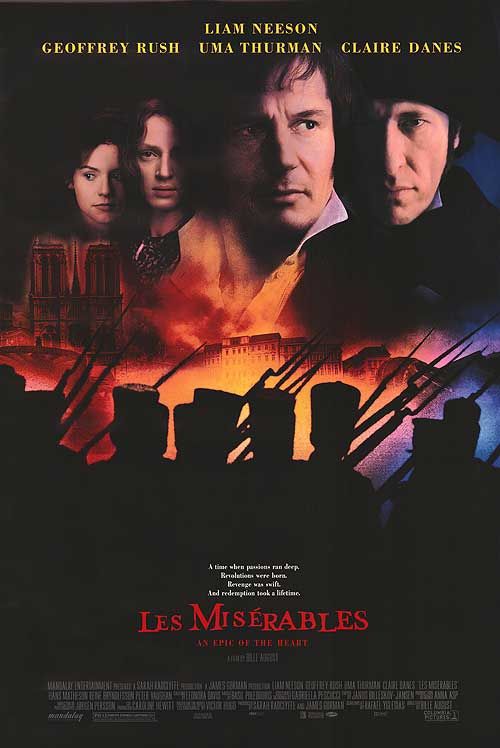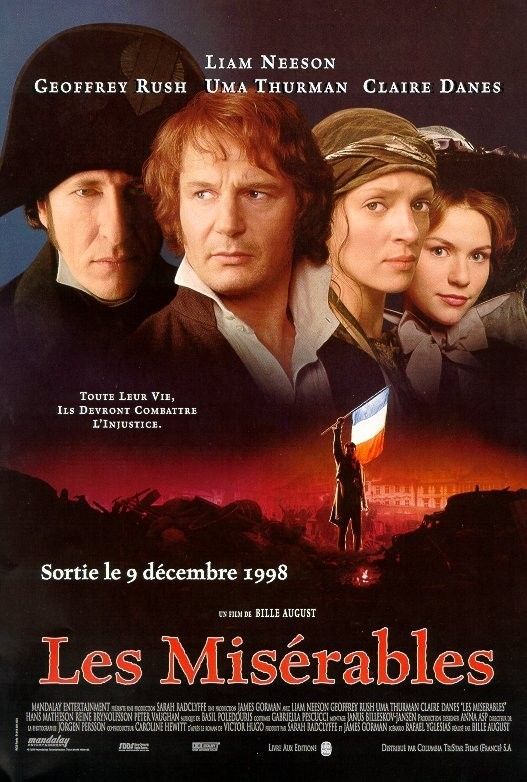

You can imagine the two of them raising Cosette together in a happier world. I liked the way they tried to expand Fantine’s story, showing a little more of her slow descent into poverty and giving her and Valjean the beginnings of a relationship, cut short by the fact that she’s dying. The acting is much more… human here than in the 1978 version, though it does suffer from not showing you at least a little of Valjean’s backstory at the beginning. But Fantine and Cosette have more presence, and it does a much better job of setting up the revolutionaries and making it feel like they have their own story that’s intersecting with Valjean’s, even if you don’t see much of it. Sure, it drops the Thénardiers once the action moves to Paris, and the rebellion seems to take about as long as the chase through the sewers. (The musical is unusual in that it actually treats the story as an ensemble piece.) It’s not quite as extreme as the Jordan/Perkins version. This is another adaptation that focuses heavily on Jean Valjean’s story, to the exclusion of everyone else’s threads, in order to cram at least one complete story into a single movie.

I was pleasantly surprised to see that the music was composed by Basil Poledouris, whose score for Conan the Barbarian is one of my favorites, but this score didn’t make much of an impression. Fortunately I never got that feeling here, though both are epics dealing with the intersection of family drama and political turmoil. The sewers in the Hooper version…let’s jus say they’re a bit more true to the sewers in the book.) I’m not familiar with director Bille August’s work, but I see that he also directed The House and the Spirits - a movie that I remember thinking (at 18) was a dull waste of a great cast. (The sewers in this version must have been the cleanest in Europe. It’s as visually appealing as the Tom Hooper-directed 2012 musical ( my review) – more so, when you factor in how gritty the 2012 version gets. It’s beautifully shot, some of it on location in Paris. Not that it’s hugely different, but there are some fairly major changes. I’m a lot more mellow about adaptation changes these days, except when they completely miss the point. On the other, I might have been more caught up in “Augh! It’s different!” objections when I was younger. On one hand, I wish I had seen it at the time.

Whatever the reason, I never got around to watching it until now. It may have simply been a matter of “it’s not the musical” (or possibly “Éponine isn’t in it”). I don’t remember why I never got around to watching the 1998 Les Misérables movie before – I was heavily into the musical at the time it was released (even subscribing to a fan newsletter and running my own fan website), and I was certainly aware of the film.


 0 kommentar(er)
0 kommentar(er)
